Obviously any group that has to have funding also needs to get attention to their issues.
BJORN LOMBORGI found university a little dispiriting. I thought I would enter the great halls of Plato, but instead I entered the halls of an intellectual sausage factory. I wanted to do something not on the main course, and chose the environment.
More Bjorn Lomborg Quotes
-





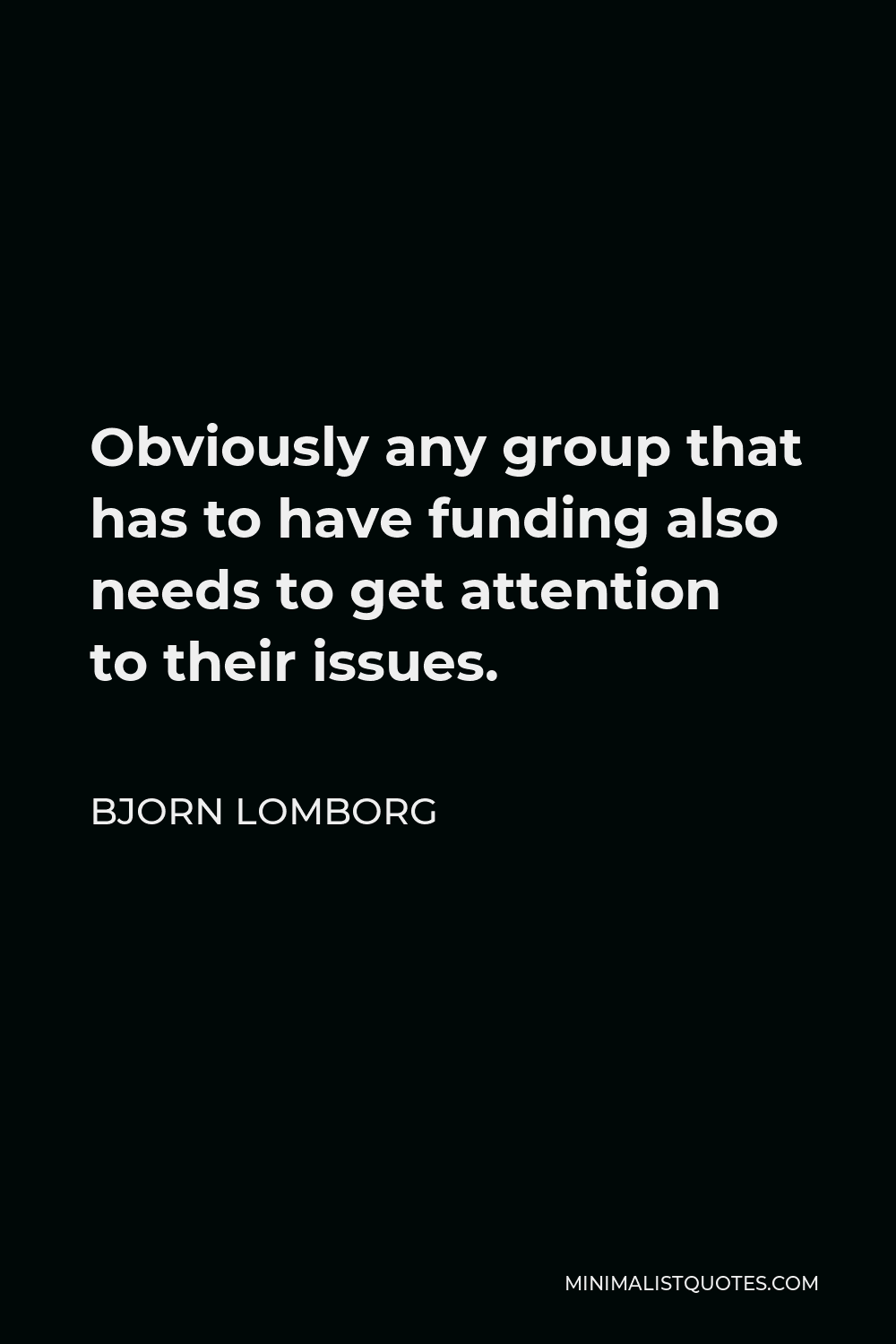
-





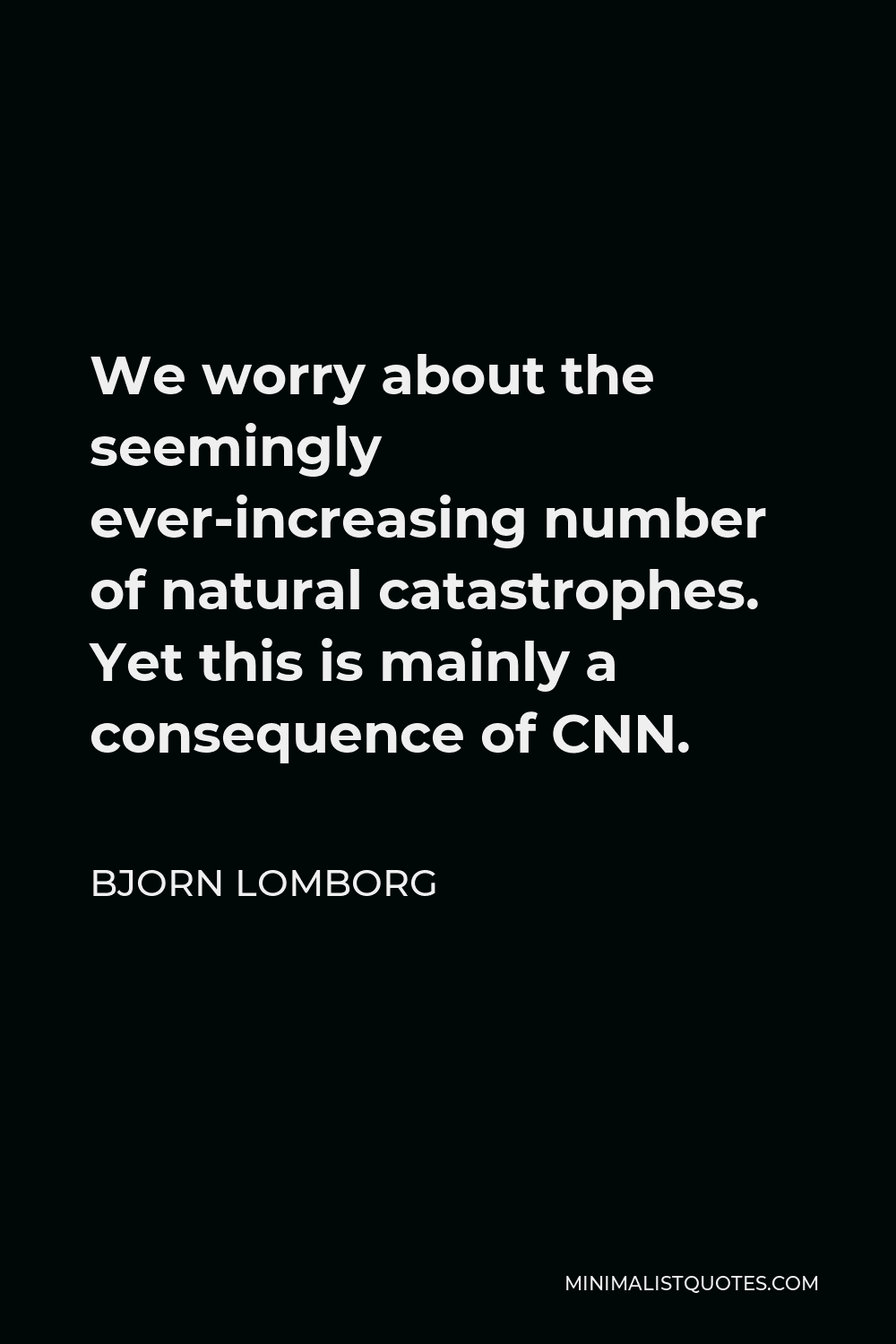
We worry about the seemingly ever-increasing number of natural catastrophes. Yet this is mainly a consequence of CNN.
BJORN LOMBORG -





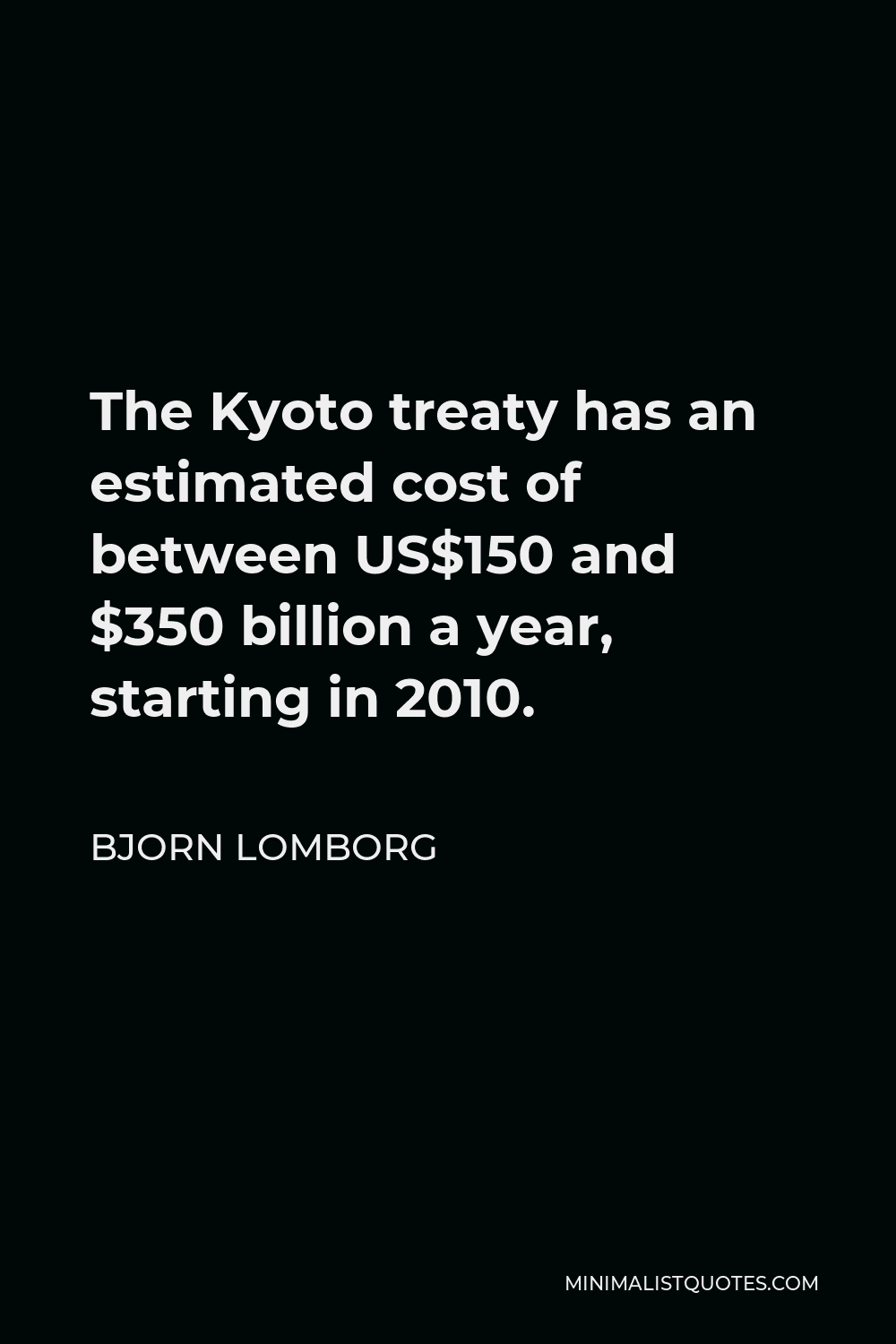
The Kyoto treaty has an estimated cost of between US$150 and $350 billion a year, starting in 2010.
BJORN LOMBORG -





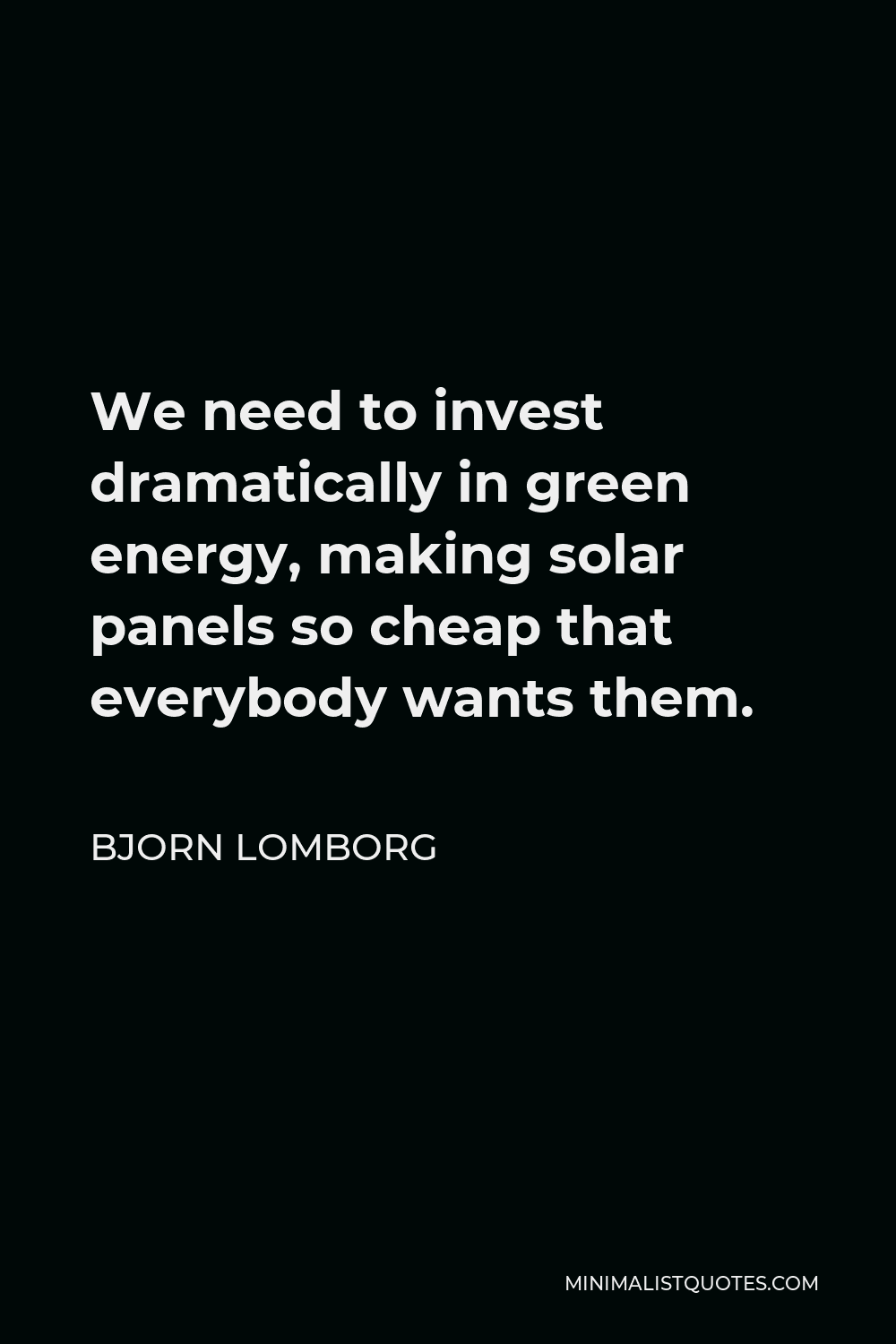
We need to invest dramatically in green energy, making solar panels so cheap that everybody wants them.
BJORN LOMBORG -





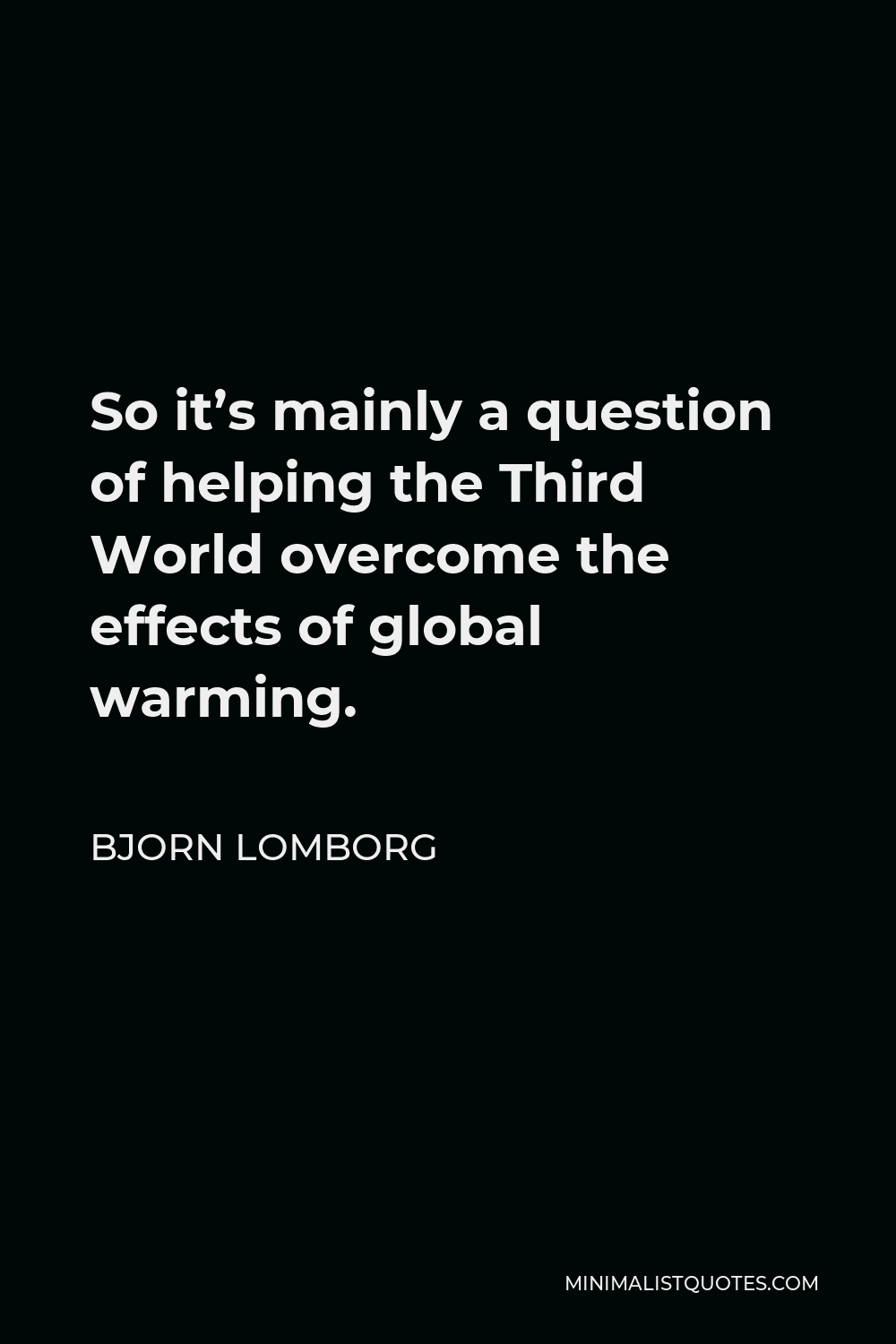
So it’s mainly a question of helping the Third World overcome the effects of global warming.
BJORN LOMBORG -





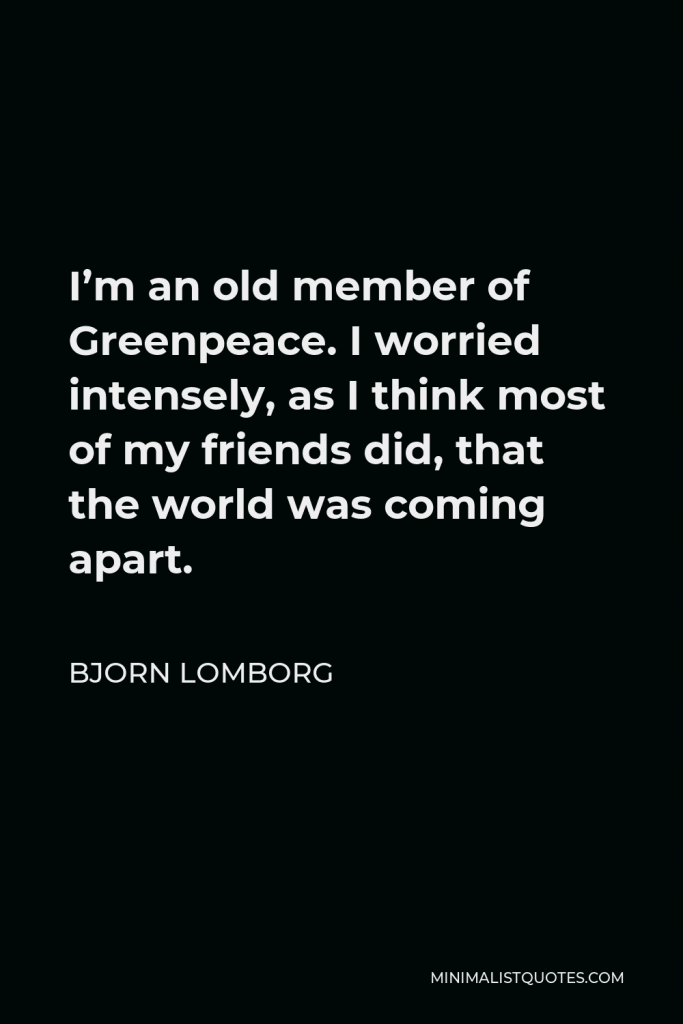

I’m an old member of Greenpeace. I worried intensely, as I think most of my friends did, that the world was coming apart.
BJORN LOMBORG -





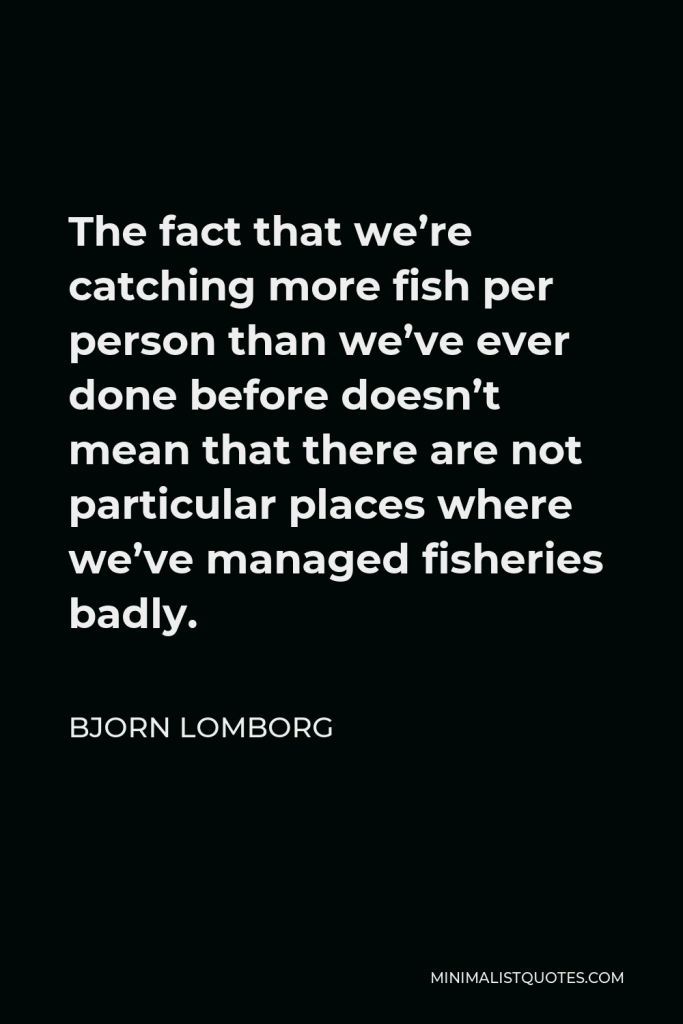

The fact that we’re catching more fish per person than we’ve ever done before doesn’t mean that there are not particular places where we’ve managed fisheries badly.
BJORN LOMBORG -





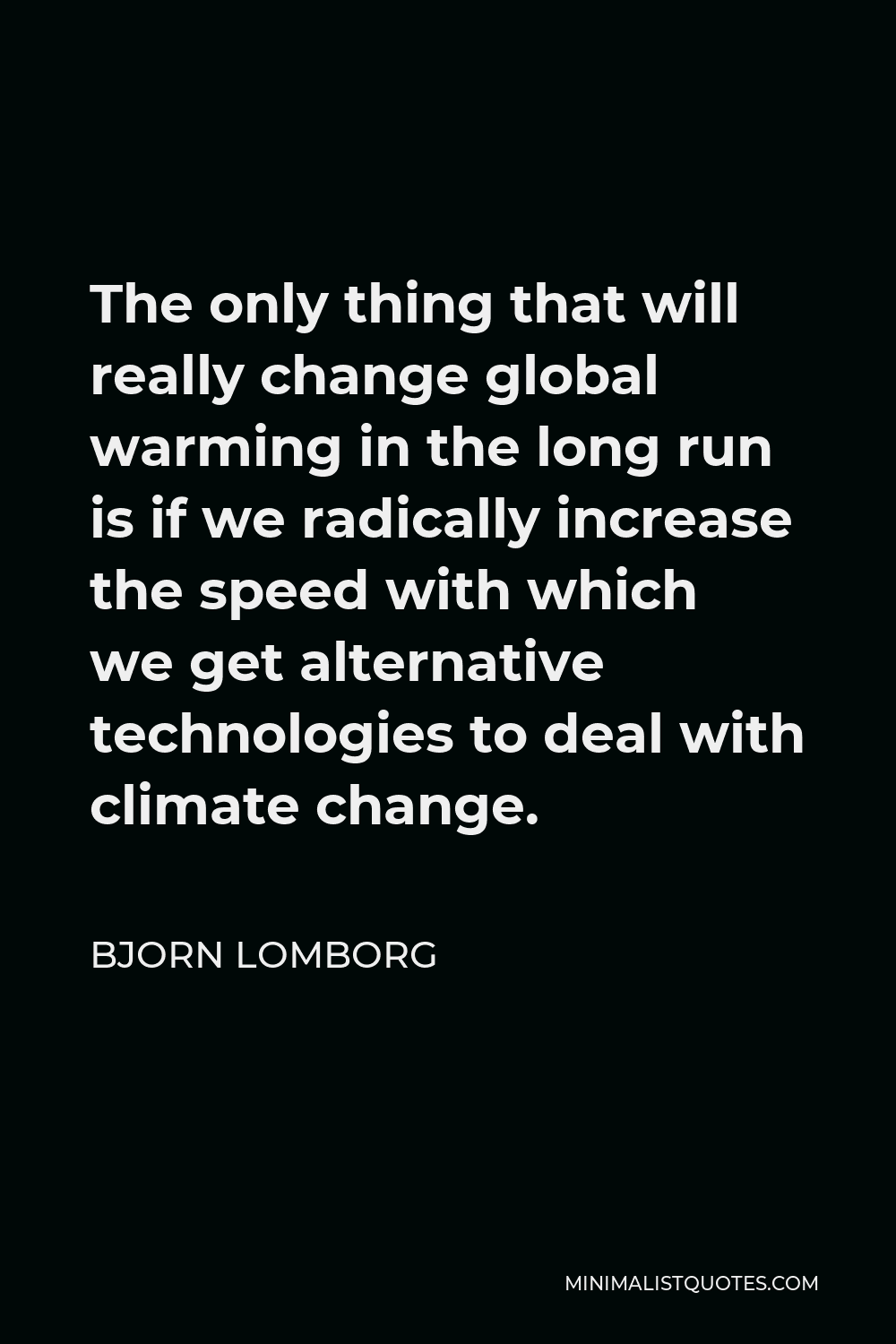
The only thing that will really change global warming in the long run is if we radically increase the speed with which we get alternative technologies to deal with climate change.
BJORN LOMBORG -





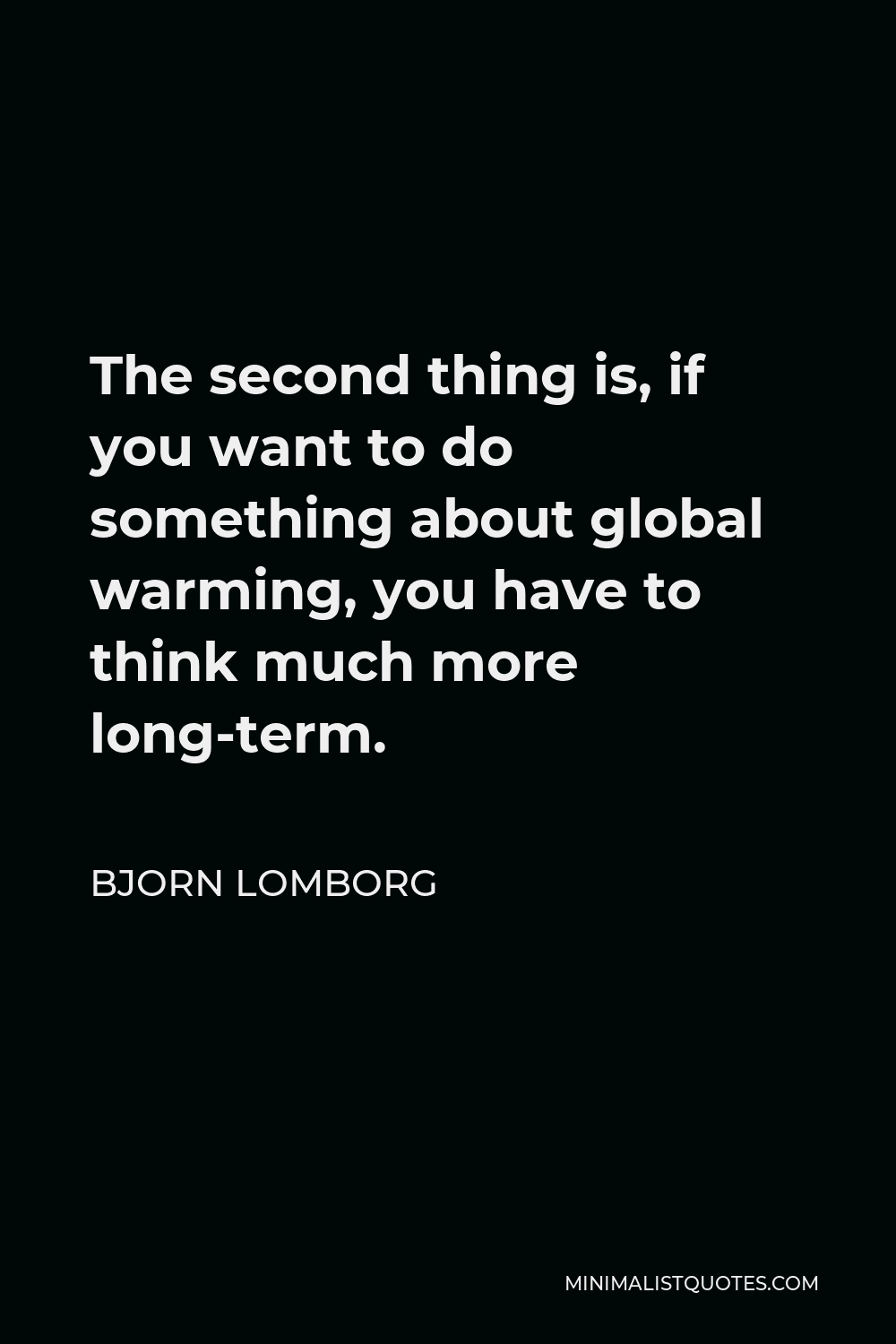
The second thing is, if you want to do something about global warming, you have to think much more long-term.
BJORN LOMBORG -





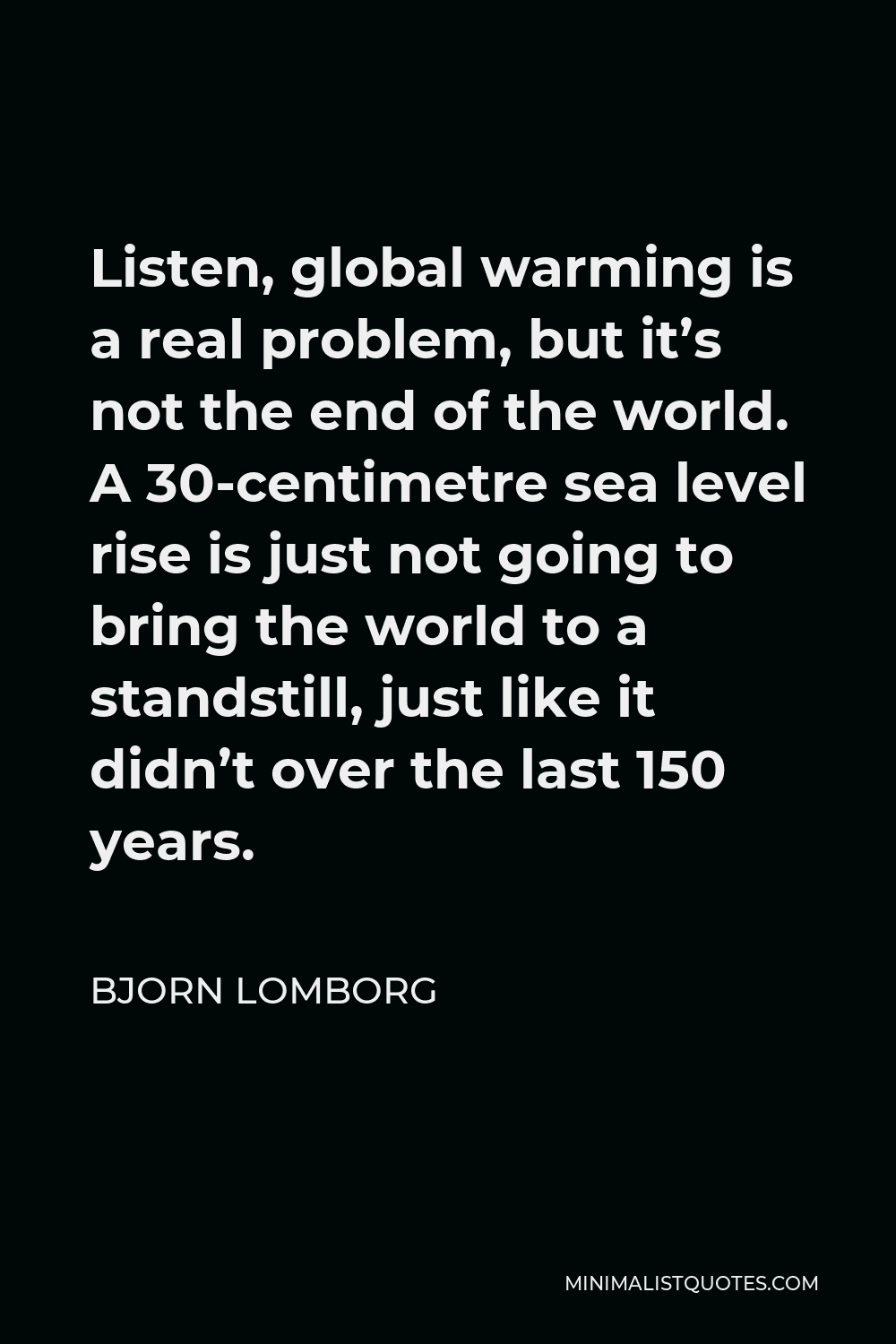
Listen, global warming is a real problem, but it’s not the end of the world. A 30-centimetre sea level rise is just not going to bring the world to a standstill, just like it didn’t over the last 150 years.
BJORN LOMBORG -





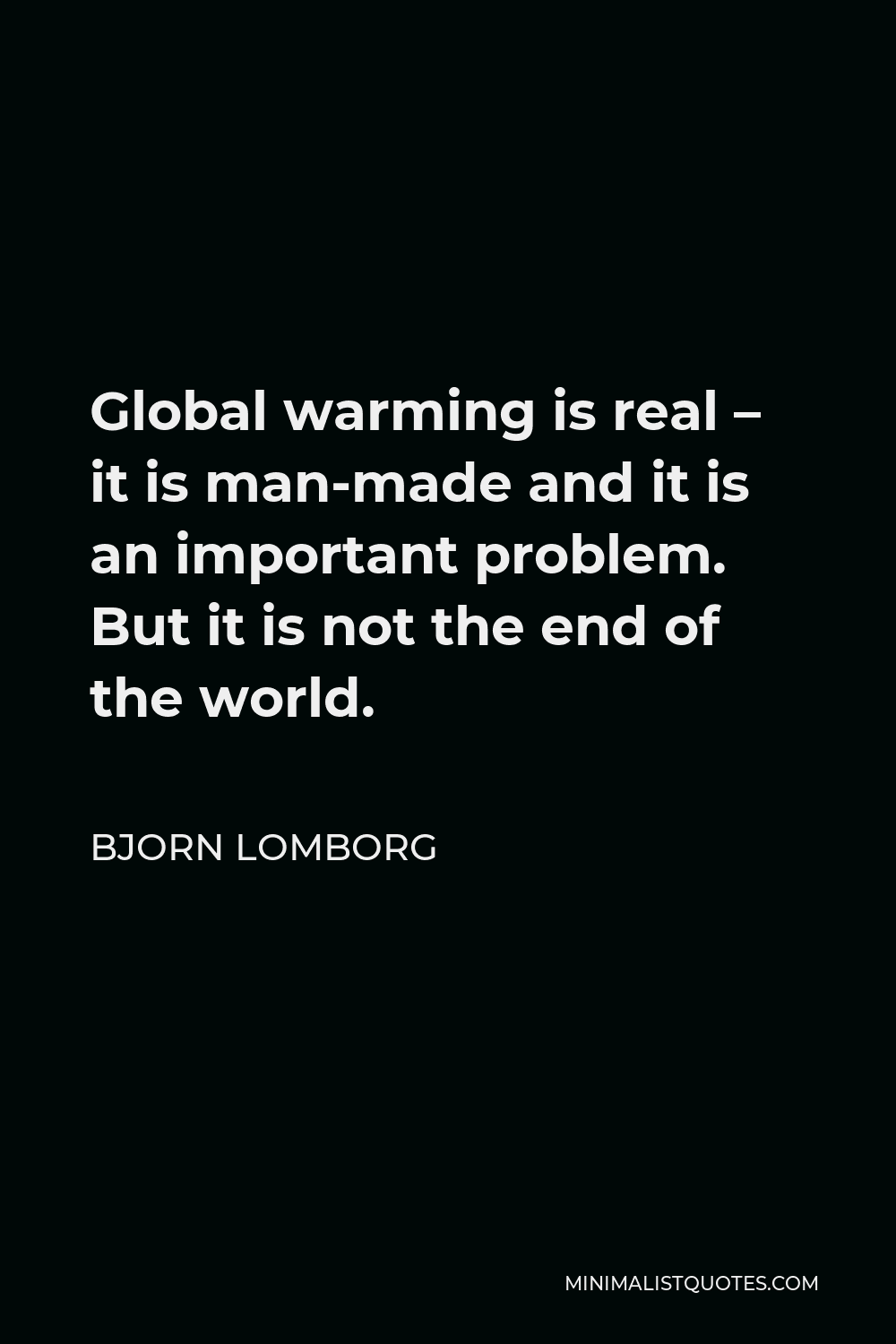
Global warming is real – it is man-made and it is an important problem. But it is not the end of the world.
BJORN LOMBORG -





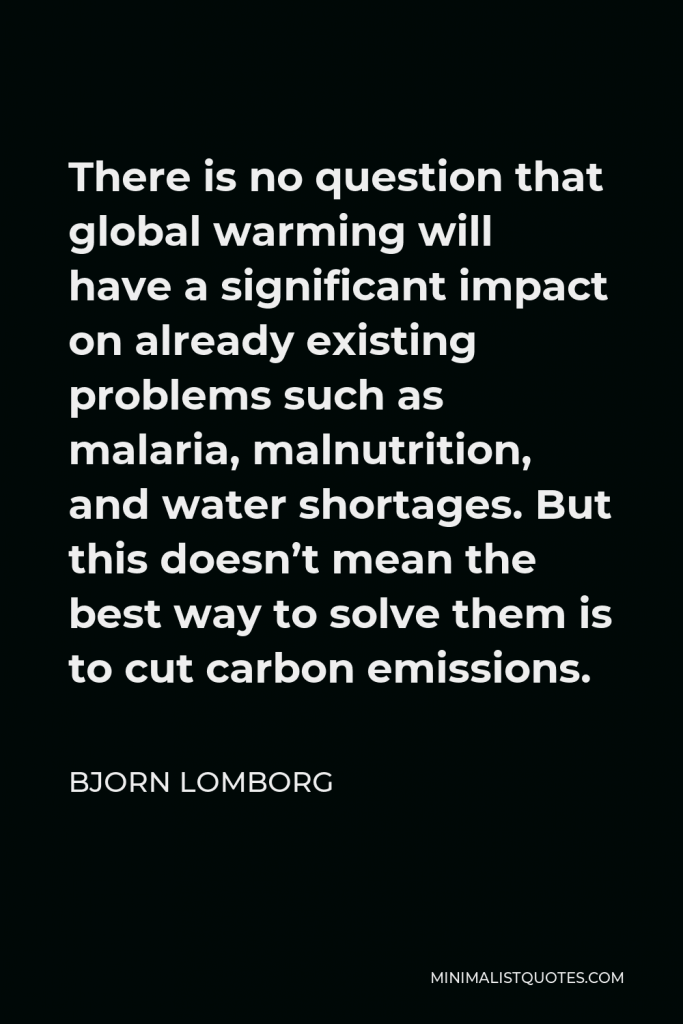

There is no question that global warming will have a significant impact on already existing problems such as malaria, malnutrition, and water shortages. But this doesn’t mean the best way to solve them is to cut carbon emissions.
BJORN LOMBORG -





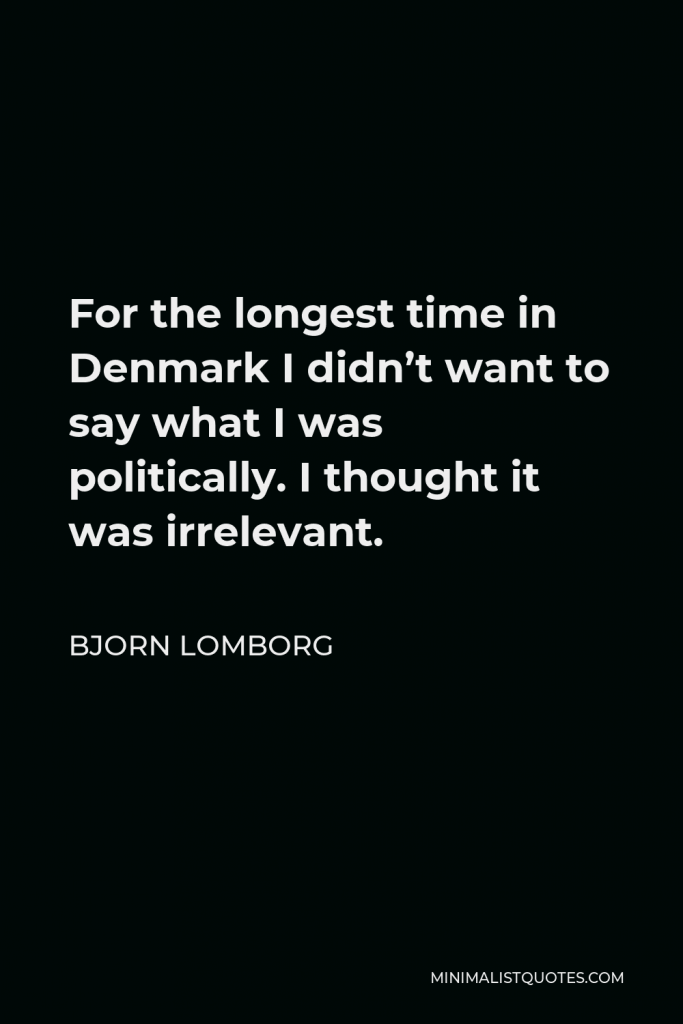

For the longest time in Denmark I didn’t want to say what I was politically. I thought it was irrelevant.
BJORN LOMBORG -





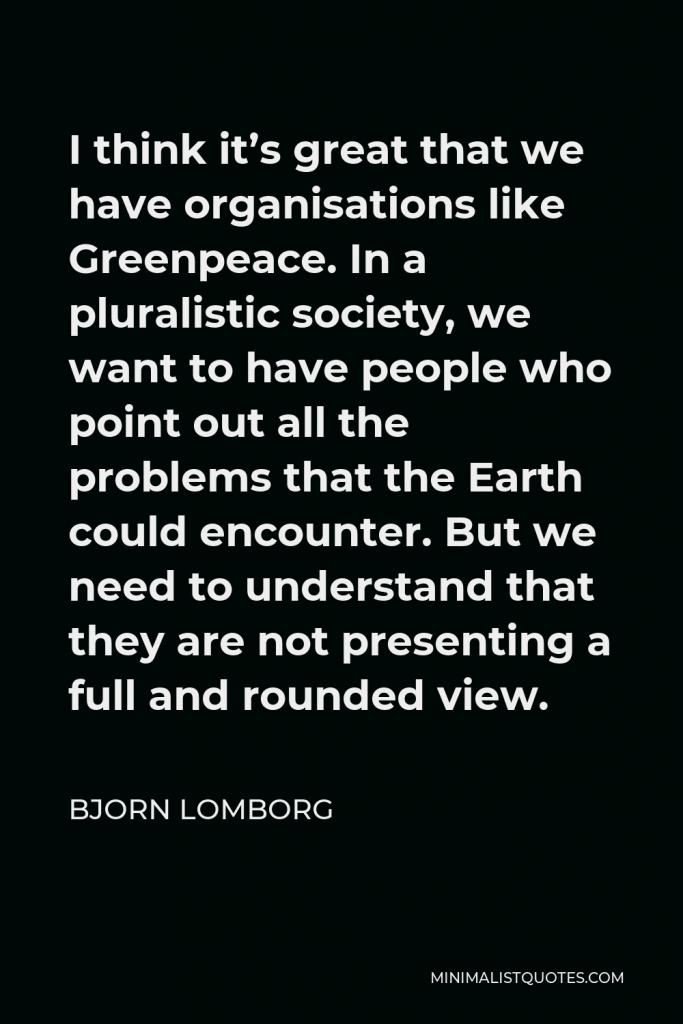

I think it’s great that we have organisations like Greenpeace. In a pluralistic society, we want to have people who point out all the problems that the Earth could encounter. But we need to understand that they are not presenting a full and rounded view.
BJORN LOMBORG -







If our starting point is to prove that Armageddon is on its way, we will not consider all of the evidence, and will not identify the smartest policy choices.
BJORN LOMBORG -





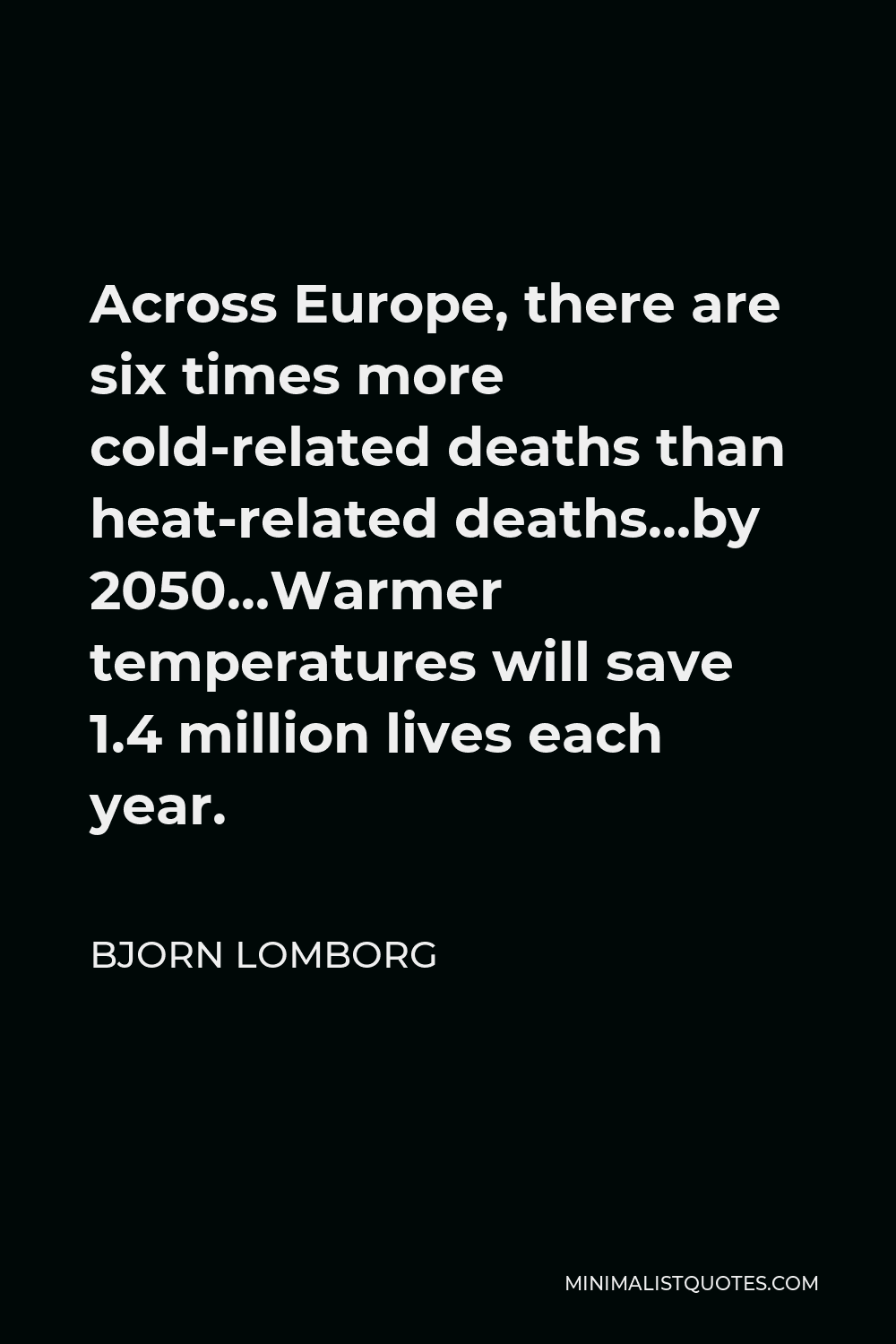
Across Europe, there are six times more cold-related deaths than heat-related deaths…by 2050…Warmer temperatures will save 1.4 million lives each year.
BJORN LOMBORG







